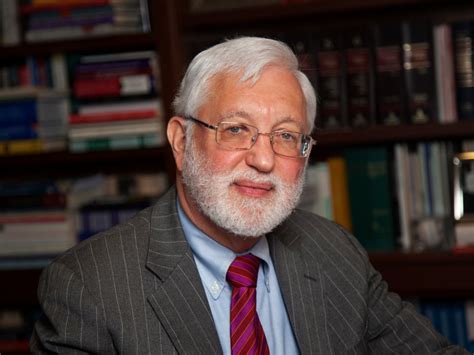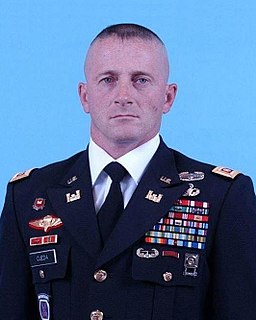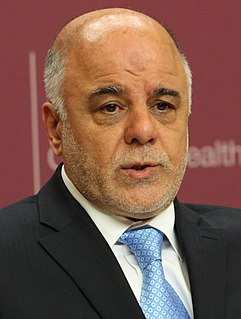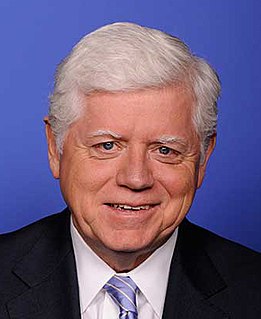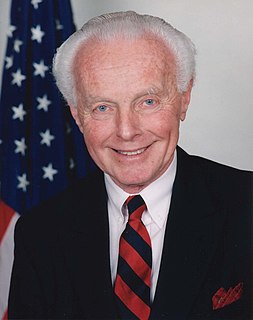A Quote by Condoleezza Rice
Our policies toward Iraq simply are to protect the region and to protect Iraq's people and neighbors.
Related Quotes
Our President feels, and apparently many in the United Nations Security Council feel, that it is necessary to disarm Iraq before Iraq can again use weapons of mass destruction on her neighbors or she makes some liaison with terrorists who will use these weapons either against Iraq's neighbors or ourselves.
We'd be better off if the whole purpose of the adventure in Iraq was, say, to protect Israel or to protect the flow of oil to America and keep it at a reasonable price and try to get some more control. If it was about oil, going into Iraq, I guess, could have made sense. But at a certain point, when the insurgency began and we were in real trouble, there would have been some awareness that we were going to jeopardize the oil.
I'm worried about people who say George W. Bush is lying. It's much more frightening that he's not lying, that he believes what he believes: that it's his mission to change the Middle East into a democracy. That's more unnerving. We'd be better off if the whole purpose of the adventure in Iraq was, say, to protect Israel or to protect the flow of oil to America and keep it at a reasonable price and try to get some more control. If it was about oil, going into Iraq, I guess, could have made sense.
Judges are the people who have to protect the rights of individuals, have to protect the rights of minorities, have to protect the rights in the Constitution, have to protect the requirement that the executive and the legislature not simply exercise raw power but adhere to standards of reasonableness and constitutionality.
In Iraq, I listened to David Petraeus speak every day about how we had to rebuild Iraq's oil infrastructure and protect it. But, if we're going to go trillions of dollars in debt over Iraq, why can't we go billions of dollars in debt and make every single coal-producing plant clean in West Virginia?



